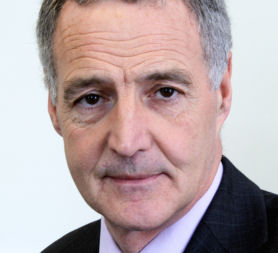Blair was 'optimistic not criminal'
Updated on 29 January 2010
Professor Michael Clarke, who was among those who briefed Tony Blair before the war, writes that he is guilty of confused optimism rather than an urge to behave illegally.

Professor Michael Clarke writes:
History will probably judge Tony Blair less harshly than many now judge him over the Iraq war. He will be judged as a man who was guilty of hubris and a confused optimism more than dishonesty or an urge to behave illegally.
He was guilty of hubris because he thought that he, Tony Blair, could be the architect of a dramatic diplomatic coup. He knew from April 2002 that the US was determined to confront Saddam Hussein and would do so, with or without its allies.
He also understood that it was unthinkable for the UK to desert Washington over Iraq at such a juncture.
After fighting together in Afghanistan in 2001, after 11 years enforcing the 'no-fly zones' in northern and southern Iraq, even after France pulled out; after all the diplomatic pressure on Saddam, the Desert Fox air operation in 1998 and all the joint intelligence cooperation that was devoted to Iraq, neither Tony Blair, nor his advisers, gave any serious thought to walking away from US policy when it came to the crunch.
More Channel 4 News coverage of the Iraq war inquiry
- Iraq inquiry: day by day
- Tony Blair: road to the Iraq inquiry
- How Blair's war shattered Iraqi lives
- Iraq: 'I am grateful to Mr Blair'
Blair saw a way through the problem. He would persuade the US to go via the United Nations in its mounting pressure, to gain international legitimacy for the policy.
He could deliver on this because he would promise, in return, to persuade the other European powers to line up behind the US, at the UN, to form an international anti-Saddam front as had existed in 1990 over his seizure of Kuwait and he would line up the major Middle Eastern states behind the policy because he would persuade President Bush to re-open the 'road map' to peace in the Arab-Israeli conflict, to be addressed as soon as Saddam was dealt with.
There was no illusion that the Bush Administration could build an international consensus for action on its own.
It was too unpopular in the world to do that but Tony Blair, he Tony Blair, would internationalise and legitimise US policy through an elaborate diplomatic package deal.
All of it would have to be delivered simultaneously in the autumn of 2002 and if it all clicked together, the world would see the Washington-London relationship as a major diplomatic/military force in world politics. But Blair was also guilty of a confused optimism in all this.
He believed that if the diplomatic equation could be achieved, war itself might be avoided.
There was no question that if it came to war, the UK would fight with the US. But with a powerful international coalition assembled, there was optimism that Saddam would be disarmed, humiliated and eviscerated without going to war.
Until late 2002 Downing Street and many key advisers still believed that Saddam would be forced to fold and war would be avoided. 'Regime change' was not part of the UK agenda in those days.
Jack Straw told parliament that we would be happy to let Saddam stay in power if he would accede to our demands for his disarmament but the diplomatic equation was not working out.
The US was not fully delivered to the UN, the international community became hostile, the other Europeans turned decisively away from the policy and the leaders of the Middle East remained characteristically confused.
So it was with a renewed, confused optimism that Tony Blair decided he would have to 'lead', as leaders should, with an assertive information campaign.
No, Downing Street did not lie about any of the intelligence assessments but it took the most optimistic top line of every issue and played down the problems and the caveats and the warnings that were coming from all parts of the system.
He was optimistic that US action would prove to be fully justified by events once victory had been swiftly achieved; optimistic that Iraqi society would quickly bounce back when it had been liberated; optimistic that the British public would move on after a victorious war.
When western intelligence agencies knew the personal mobile phone numbers of Iraqi Republican Guard commanders, it remains unfathomable why coalition forces were so surprised by what was really happening inside Iraq once they occupied the country.
Perhaps most of all, Tony Blair was, and is, optimistic that history will eventually judge him to have been strategically correct in his initial judgement.
On one thing, at least, he is assured of some sympathy: that in his instinct in tough circumstances that a British prime minister should back the administration in Washington, he was the unluckiest of prime ministers in having to deal with the most foolish and irresponsible US government in a century or more. There was really nothing he could do about that.
Professor Michael Clarke is the Director of the Royal United Services Institute, an independent think tank engaged in defence and security Studies research. In 2009 he was announced as a member of the National Security Forum offering independent security advice to the Government.
He has been senior Specialist Adviser to the House of Commons Defence Committee since 1997, having served previously with the House of Commons Foreign Affairs Committee 1995-7. Until July 2007 he was the Deputy Vice-Principal and Director of Research Development at King’s College London, where he remains a Visiting Professor of Defence Studies. He was appointed as Professor of Defence Studies in 1995.





